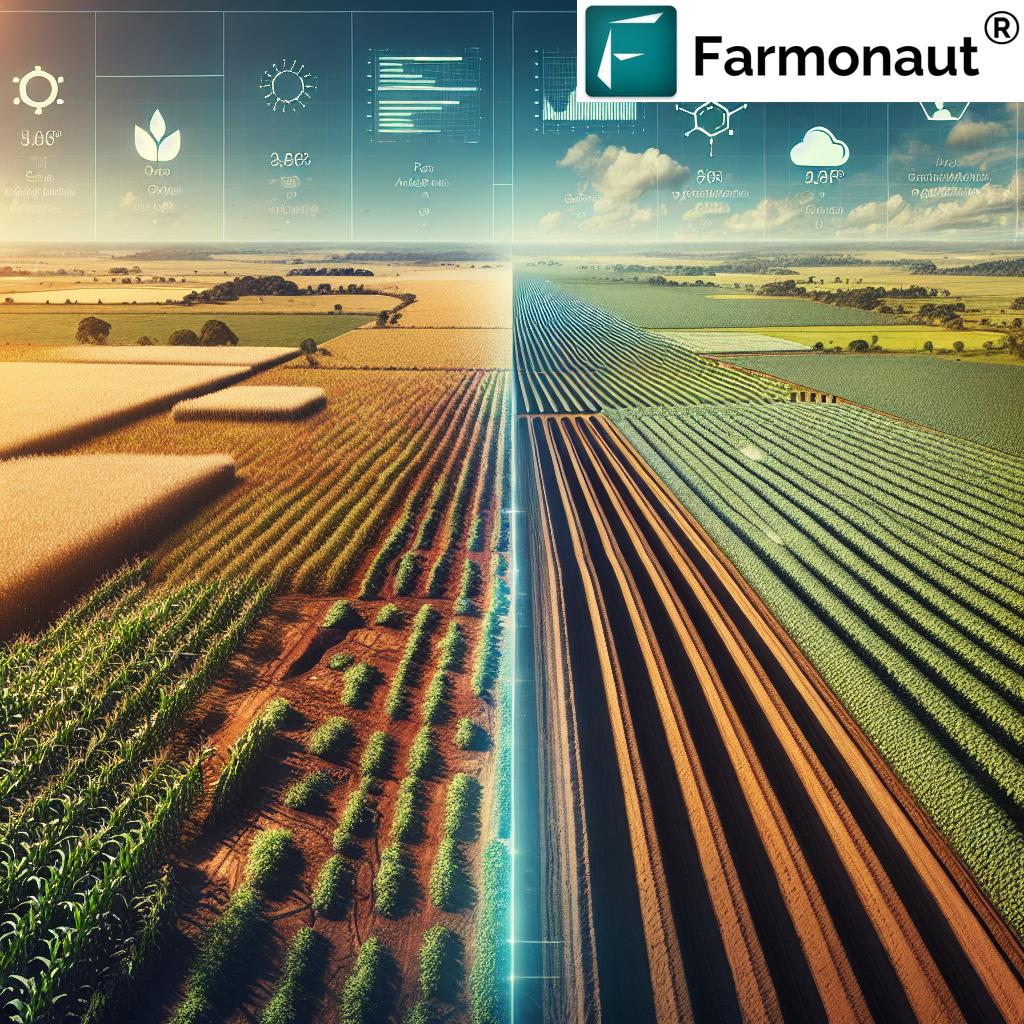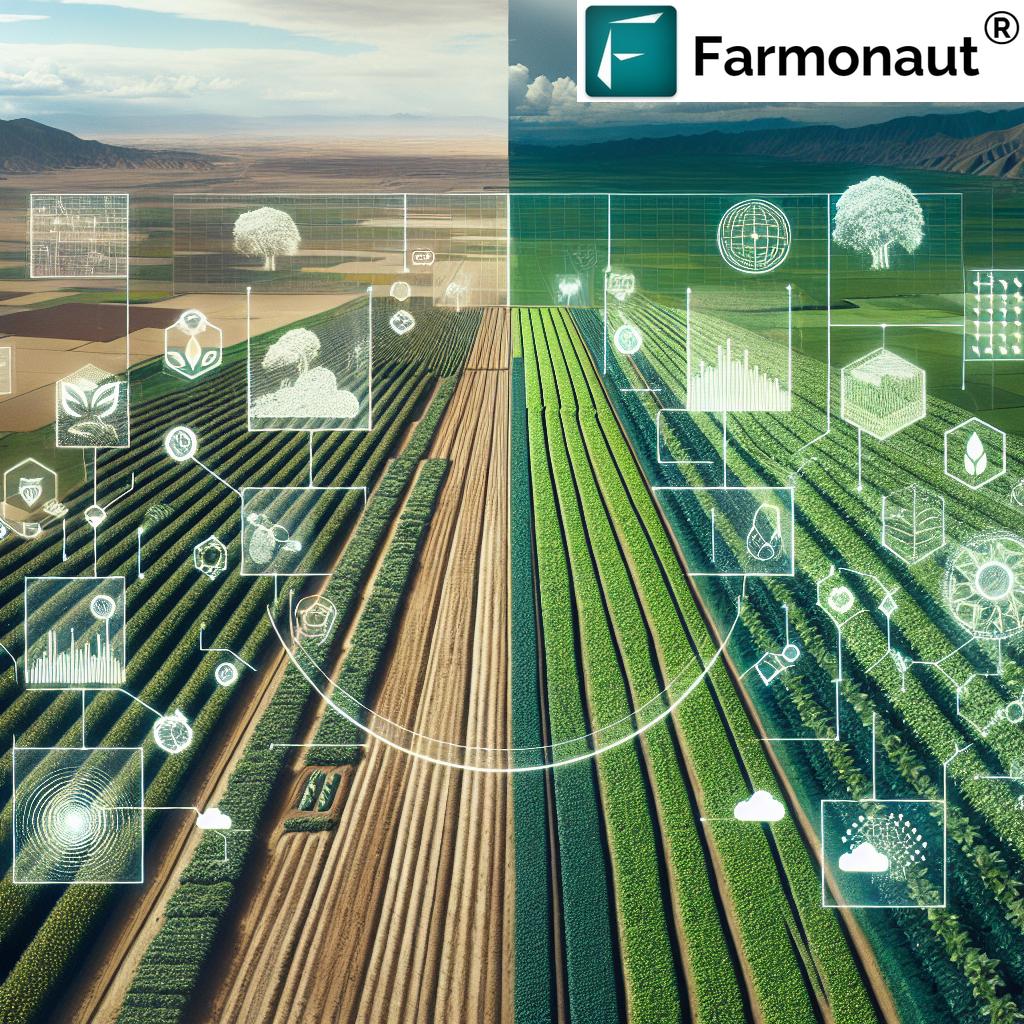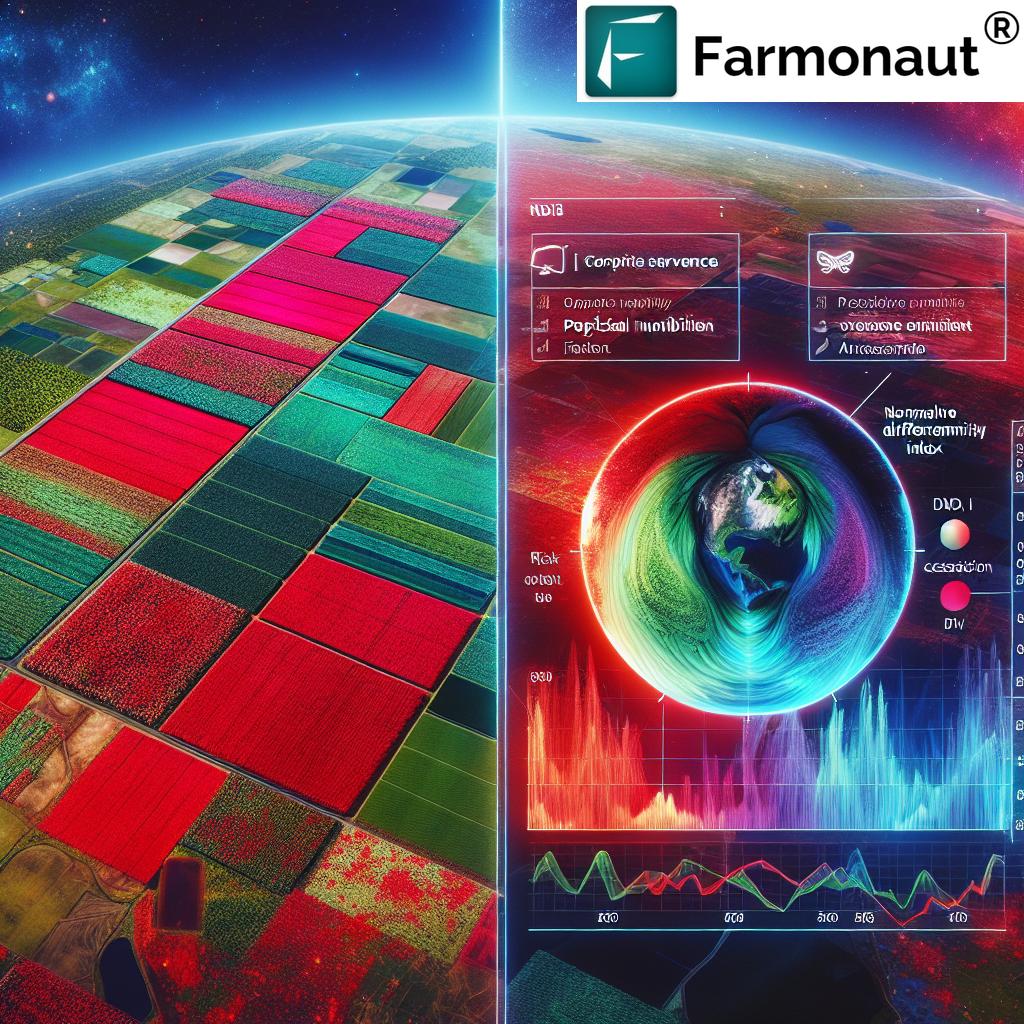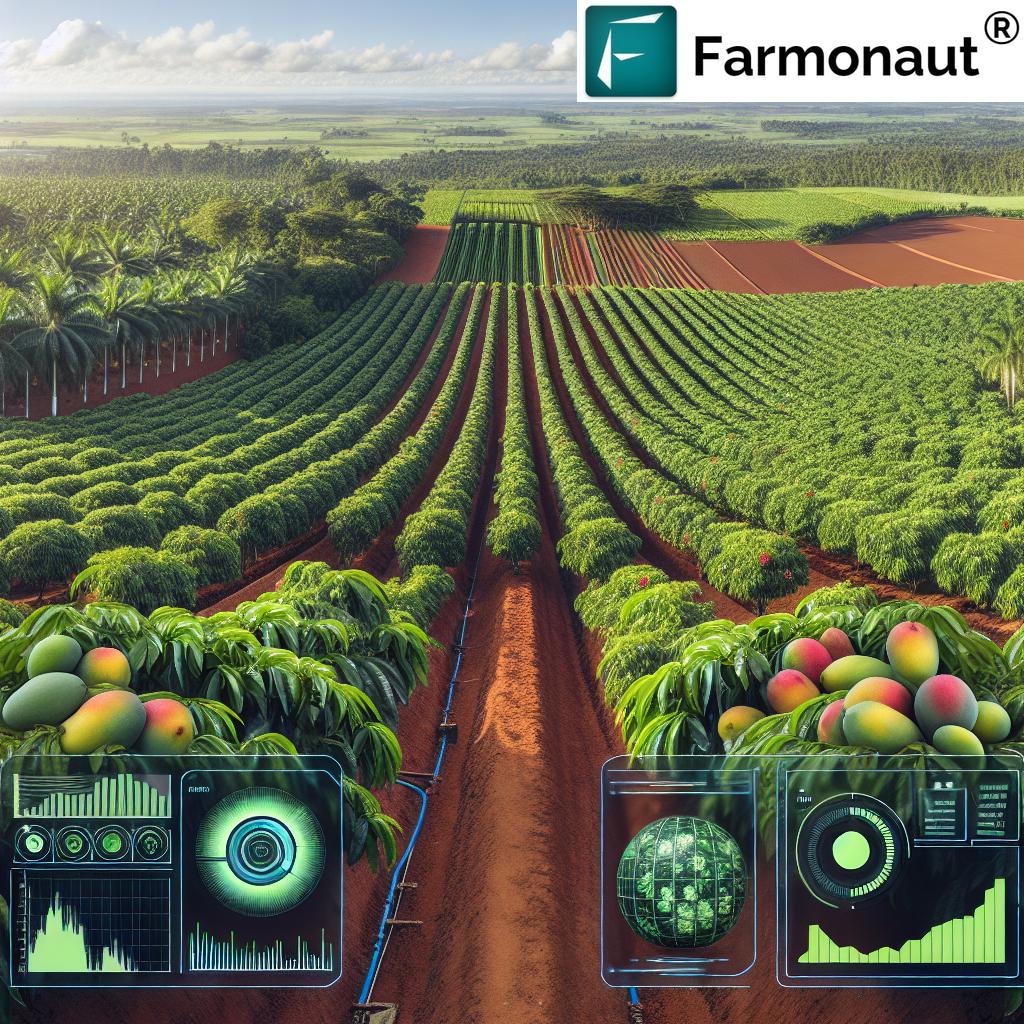Brazil’s Potash Revolution: Boosting Agriculture and Food Security in Amazonas
“Brazil’s new potash project in Amazonas could significantly impact up to 20% of the global fertilizer market.”
In the heart of South America, a revolution is brewing that promises to reshape the global agricultural landscape. We’re witnessing the dawn of Brazil’s potash revolution, a transformative movement set to bolster agriculture and enhance food security, not just in the Amazonas region, but potentially across the world. As we delve into this exciting development, we’ll explore how potash mining in Brazil is poised to revolutionize the global fertilizer market and its far-reaching implications for agricultural supply chain management.
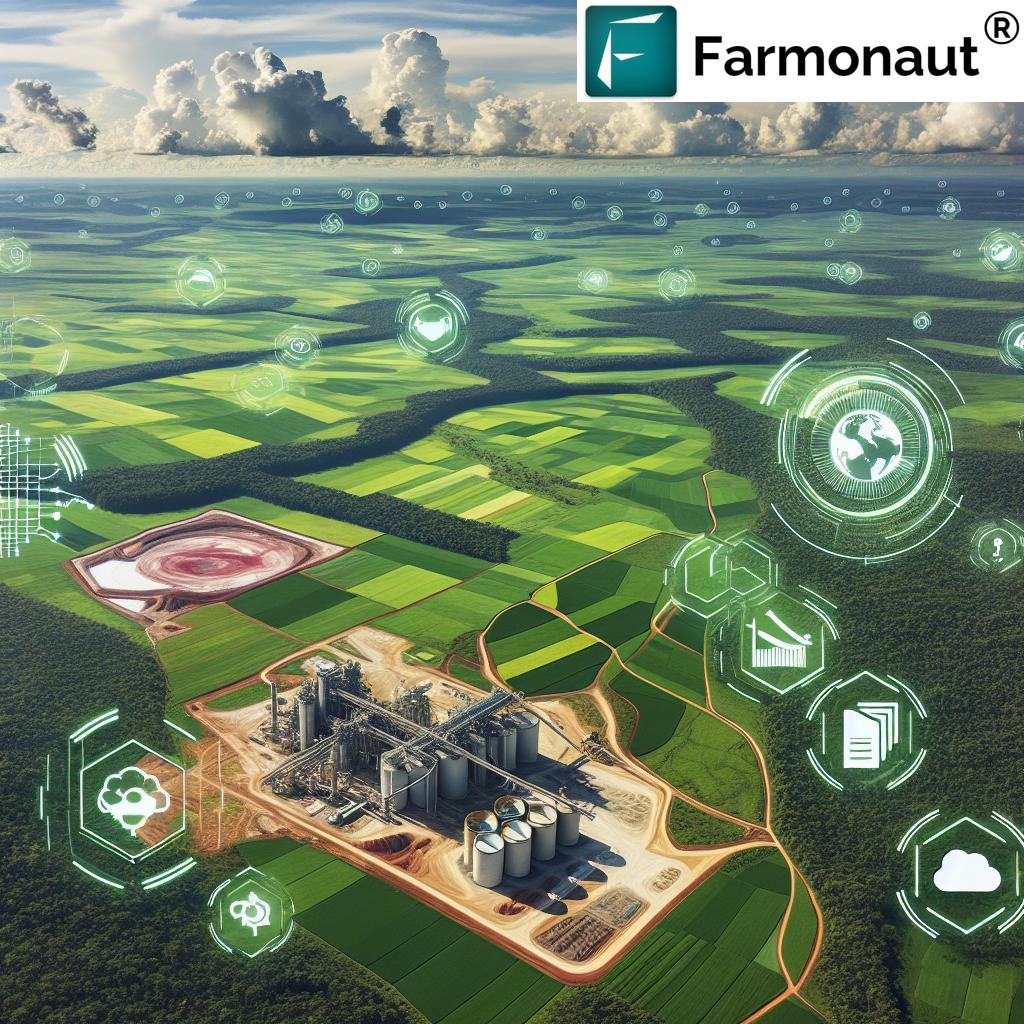
The Autazes Potash Project: A Game-Changer for Brazilian Agribusiness
At the heart of this revolution lies the Autazes Potash Project, a ambitious venture spearheaded by Brazil Potash Corp. Located in the state of Amazonas, this project is not just another mining operation; it represents a strategic move to position Brazil as a key player in the international fertilizer industry. The implications of this project extend far beyond the borders of Brazil, potentially reshaping global agricultural practices and food production strategies.
The Autazes Project is set to become a cornerstone in Brazilian agribusiness development. By tapping into vast potash reserves, Brazil aims to reduce its dependency on imported fertilizers, a move that could significantly lower costs for farmers and boost agricultural sector growth. This shift towards domestic production aligns perfectly with Brazil’s ambitions to enhance its food security and solidify its position as an agricultural powerhouse.
Revolutionizing Agricultural Supply Chain Management
The advent of large-scale potash production in Brazil is set to have a profound impact on agricultural supply chain management. Here’s how:
- Reduced Transportation Costs: Domestic production will significantly cut down on long-distance transportation of fertilizers, reducing both costs and carbon footprint.
- Enhanced Supply Reliability: Local production ensures a more stable and reliable supply of fertilizers, less susceptible to global market fluctuations.
- Improved Quality Control: Closer proximity to production allows for better quality control and customization of fertilizers to suit local soil conditions.
- Streamlined Distribution: A domestic supply chain can be more easily optimized, leading to faster and more efficient distribution to farmers.
These improvements in the supply chain are not just beneficial for Brazil; they set a new standard for agricultural supply chain management globally, potentially inspiring similar localization efforts in other regions.
Global Fertilizer Market Trends: Brazil’s Rising Influence
The global fertilizer market is on the cusp of a significant shift, with Brazil poised to become a major influencer. Current trends indicate a growing demand for fertilizers worldwide, driven by the need to increase agricultural productivity to feed a growing global population. Brazil’s entry as a major potash producer is likely to introduce new dynamics in pricing and supply patterns.
We anticipate that Brazil’s increased production capacity could lead to:
- More competitive pricing in the global potash market
- Diversification of global supply sources, reducing dependency on traditional producers
- Potential for new trade relationships and partnerships in the agricultural sector
- Increased focus on sustainable and efficient fertilizer use, driven by Brazil’s agricultural expertise
These trends underscore the importance of staying informed about developments in Brazil’s potash industry for anyone involved in global agriculture or the fertilizer market.
Sustainable Agriculture Practices: A Core Focus
As Brazil embarks on this potash revolution, there’s a strong emphasis on integrating sustainable agriculture practices. The country recognizes that increased fertilizer production must go hand-in-hand with responsible usage and environmental stewardship. Here’s how Brazil is approaching this balance:
- Precision Agriculture: Promoting the use of technology for precise fertilizer application, reducing waste and environmental impact.
- Soil Health Management: Encouraging practices that maintain soil health alongside fertilizer use.
- Organic Integration: Exploring ways to combine organic farming techniques with strategic fertilizer use.
- Water Conservation: Implementing irrigation systems that optimize water use in conjunction with fertilizer application.
These sustainable practices are not just beneficial for Brazil; they set a standard for global agricultural practices, potentially influencing how other countries approach the balance between productivity and sustainability.
“Environmental licensing for mining projects in Brazil can take up to 5-7 years due to complex regulations.”
Environmental Licensing: Navigating Complexities for Sustainable Mining
One of the critical aspects of the Autazes Potash Project is navigating the complex environmental licensing process in Brazil. This process is crucial for ensuring that mining operations are conducted in an environmentally responsible manner, particularly given the sensitive ecosystem of the Amazon region.
Key points in the environmental licensing process include:
- Rigorous environmental impact assessments
- Consultation with local communities and indigenous groups
- Development of comprehensive environmental management plans
- Ongoing monitoring and reporting mechanisms
While this process can be time-consuming, taking up to 5-7 years, it’s essential for ensuring that the potash mining project aligns with Brazil’s commitment to sustainable development and environmental protection. This thorough approach also sets a precedent for responsible mining practices globally.

Agritech Innovations: Driving Efficiency in Potash Production and Distribution
The potash revolution in Brazil is not just about mining; it’s also spurring significant agritech innovations, particularly in potash production and distribution. These technological advancements are set to enhance efficiency, reduce environmental impact, and improve overall agricultural productivity.
Some key agritech innovations emerging in this sector include:
- AI-Driven Mining Operations: Utilizing artificial intelligence to optimize extraction processes and reduce waste.
- Smart Distribution Systems: Implementing IoT (Internet of Things) devices to track and manage fertilizer distribution more efficiently.
- Precision Application Technologies: Developing tools for farmers to apply potash fertilizers with greater precision, maximizing effectiveness while minimizing environmental impact.
- Blockchain for Supply Chain Transparency: Implementing blockchain technology to enhance traceability and transparency in the fertilizer supply chain.
These innovations are not only enhancing the potash industry in Brazil but are also contributing to the broader landscape of agritech solutions in South America and beyond.
Food Security Solutions: Brazil’s Contribution to Global Challenges
The potash project in Amazonas is more than just an economic venture; it’s a significant step towards enhancing food security, both in Brazil and globally. By increasing the domestic supply of essential fertilizers, Brazil is positioning itself to play a crucial role in addressing one of the world’s most pressing challenges: ensuring food security for a growing population.
Here’s how Brazil’s potash revolution contributes to food security solutions:
- Increased Crop Yields: Reliable access to potash fertilizers can significantly boost crop yields, increasing food production.
- Price Stabilization: Domestic production can help stabilize fertilizer prices, making it more affordable for farmers and potentially lowering food costs.
- Resilience to Global Shocks: Reduced dependence on imports makes Brazil’s agricultural sector more resilient to global supply chain disruptions.
- Export Capacity: Increased agricultural productivity could enhance Brazil’s ability to export food, contributing to global food security.
These developments demonstrate how strategic investments in agricultural inputs like potash can have far-reaching impacts on global food security challenges.
Stakeholder Management: Balancing Interests for Sustainable Growth
The success of Brazil’s potash revolution hinges on effective stakeholder management. This project involves a complex web of interests, including local communities, environmental groups, government bodies, and international investors. Balancing these diverse interests is crucial for the project’s long-term sustainability and success.
Key aspects of stakeholder management in this context include:
- Community Engagement: Involving local communities in decision-making processes and ensuring they benefit from the project.
- Environmental Stewardship: Working closely with environmental groups to ensure mining operations meet the highest standards of sustainability.
- Government Collaboration: Maintaining transparent and cooperative relationships with various levels of government to navigate regulatory landscapes.
- Investor Relations: Keeping investors informed and aligned with the project’s long-term vision and sustainability goals.
Effective stakeholder management is not just about mitigating risks; it’s about creating a shared vision for sustainable development that benefits all parties involved.
Governance Issues: Ensuring Transparency and Accountability
As Brazil embarks on this significant venture, addressing governance issues is paramount. Transparent and accountable governance structures are essential for the project’s success and for maintaining public trust. Key governance considerations include:
- Regulatory Compliance: Ensuring strict adherence to all relevant mining and environmental regulations.
- Financial Transparency: Implementing clear financial reporting mechanisms to track the project’s economic impacts and benefits.
- Anti-Corruption Measures: Establishing robust anti-corruption policies and practices throughout the project’s operations.
- Environmental Oversight: Creating independent environmental monitoring bodies to ensure ongoing compliance and sustainability.
By prioritizing strong governance, Brazil can set a new standard for responsible resource development in the mining sector, potentially influencing practices worldwide.
The Role of Technology in Agricultural Sector Growth
Technology plays a pivotal role in maximizing the benefits of Brazil’s potash revolution. Advanced technological solutions are being integrated at every stage, from mining operations to agricultural applications. This integration is key to driving agricultural sector growth and ensuring the efficient use of resources.
Some technological advancements making a significant impact include:
- Satellite-Based Crop Monitoring: Utilizing satellite imagery for precise crop health assessment and fertilizer application planning.
- AI-Powered Predictive Analytics: Employing artificial intelligence to predict crop yields and optimize fertilizer usage.
- Drone Technology: Using drones for detailed field mapping and targeted fertilizer application.
- Smart Irrigation Systems: Integrating fertilizer application with smart irrigation for optimal nutrient uptake.
These technological advancements not only enhance the efficiency of potash use but also contribute to overall agricultural productivity and sustainability.
Brazil’s Position in the Global Fertilizer Market: A New Era
The Autazes Potash Project marks a significant shift in Brazil’s position in the global fertilizer market. Historically a major importer of fertilizers, Brazil is now poised to become a key producer and potentially an exporter of potash. This transformation has several implications:
- Reduced Import Dependency: Decreasing reliance on imported fertilizers, enhancing national food security.
- Economic Benefits: Potential for significant economic growth through job creation and export revenues.
- Global Market Influence: Ability to influence global potash prices and supply dynamics.
- Agricultural Self-Sufficiency: Moving towards greater self-sufficiency in agricultural inputs.
This shift not only benefits Brazil but also contributes to a more diversified and resilient global fertilizer market, potentially leading to more stable prices and supply for farmers worldwide.
Comparative Analysis: Brazil’s Potash Revolution
| Aspect | Before Potash Project | After Potash Project | Global Implications |
|---|---|---|---|
| Fertilizer Production Capacity | Limited domestic production | Significant increase (est. 20% market share) | More diverse global supply |
| Agricultural Productivity | Constrained by fertilizer costs | Potential 15-20% increase in yields | Contribution to global food security |
| Food Security Index | Moderate | Improved (est. 10-15% increase) | Model for other developing nations |
| Environmental Impact | High import-related carbon footprint | Reduced transportation emissions | Potential global reduction in fertilizer-related emissions |
| Agritech Innovation | Limited to farming practices | Extended to mining and distribution | Advancements in global agritech solutions |
| Brazil’s Position in Global Fertilizer Market | Major importer | Potential major producer and exporter | Shift in global market dynamics |
The Future of Global Agriculture and Food Production
As we look to the future, Brazil’s potash revolution stands as a beacon of progress in global agriculture and food production. The implications of this development extend far beyond Brazil’s borders, potentially reshaping how we approach food security, sustainable agriculture, and resource management on a global scale.
Key future trends we anticipate include:
- Localization of Fertilizer Production: Other countries may follow Brazil’s lead in developing domestic fertilizer production capabilities.
- Increased Focus on Sustainable Mining: Brazil’s approach to environmental licensing and sustainable mining practices could set new global standards.
- Acceleration of Agritech Adoption: The integration of advanced technologies in Brazil’s agricultural sector could spur wider adoption of agritech solutions globally.
- Shifts in Global Trade Patterns: Changes in fertilizer production and distribution could lead to new trade relationships and economic partnerships.
These developments underscore the interconnectedness of global agriculture and the potential for localized innovations to have far-reaching impacts.
Conclusion: A New Chapter in Global Agriculture
Brazil’s potash revolution, centered around the Autazes Project in Amazonas, represents more than just a boost to the country’s agricultural sector. It’s a transformative development that could reshape global agriculture, food security, and sustainable resource management. As this project progresses, it will be crucial for stakeholders at all levels – from local communities to global markets – to engage collaboratively and responsibly.
The success of this venture could serve as a model for other nations, demonstrating how strategic investments in agricultural inputs, coupled with sustainable practices and technological innovation, can drive significant positive change. As we move forward, the global agricultural community will be watching Brazil closely, learning from its successes and challenges in this bold new endeavor.
For those looking to stay at the forefront of these developments, tools like Farmonaut’s satellite-based farm management solutions can provide valuable insights into agricultural trends and practices. By leveraging advanced technologies, we can all play a part in shaping a more sustainable and food-secure future.
Explore Farmonaut’s innovative solutions:
For developers interested in integrating agricultural data:
Download Farmonaut mobile apps:
FAQ Section
- Q: What is the Autazes Potash Project?
A: The Autazes Potash Project is a major mining venture in Amazonas, Brazil, aimed at producing potash fertilizer to boost the country’s agricultural sector and reduce dependence on imports. - Q: How will this project impact global fertilizer markets?
A: The project could significantly influence up to 20% of the global fertilizer market, potentially leading to more competitive pricing and diversified supply sources. - Q: What are the environmental considerations for this project?
A: The project undergoes rigorous environmental licensing, which can take 5-7 years, ensuring compliance with sustainability standards and minimizing ecological impact. - Q: How does this project contribute to food security?
A: By increasing domestic fertilizer production, the project aims to boost crop yields, stabilize prices, and enhance Brazil’s agricultural productivity, contributing to both national and global food security. - Q: What role does technology play in this development?
A: Advanced technologies, including AI, satellite monitoring, and precision agriculture tools, are integral to optimizing potash production, distribution, and application in farming.






